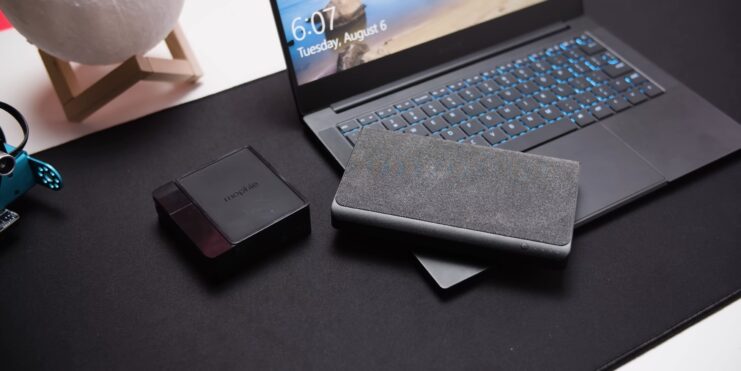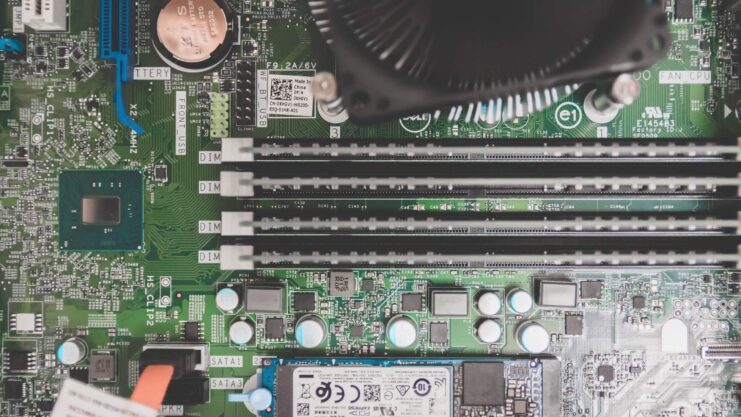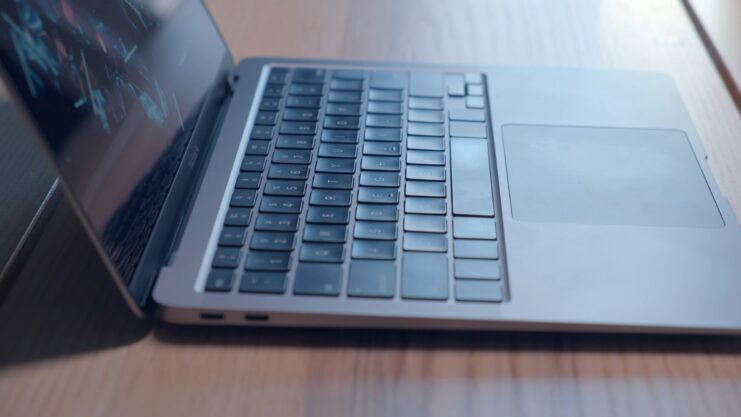Laptops are like faithful companions that go with us everywhere, from the classroom to the coffee shop, and even on vacation. But just like anything else, they don’t last forever.
Today, I will talk about how long you can expect your laptop to stick around and what happens to its battery over time.
Key Takeaways
- The average lifespan of a laptop is four to five years, with Apple laptops often lasting longer.
- Batteries typically have a shorter lifespan than the laptops themselves, averaging three to five years.
- Regular maintenance, cooling down, and avoiding extreme temperatures can extend both laptop and battery life.
- Upgrading components like RAM or SSD can rejuvenate an older laptop, delaying the need for a complete replacement.
- Environmental considerations are important; extending the life of your laptop reduces electronic waste and conserves resources.
How Long Do Laptops Usually Last?

The journey of a laptop from brand-new to “I think it’s time for an upgrade” generally spans four to five years.
However, if you’ve got an Apple laptop, you might be in for a slightly longer ride, as they tend to outlast their competitors.
Why Don’t They Last Forever?
Imagine your laptop as a car. Over time, parts wear out, newer models come out with features yours doesn’t have, and eventually, it doesn’t make sense to keep putting money into old technology.
Specifically, after about a decade, laptops face software issues that render them obsolete.
The Heart of the Matter: Battery Life

Laptop batteries are notorious for their finite lifespan, which is often shorter than the laptop itself. On average, a laptop battery’s prime years are its first three to five.
For Apple enthusiasts, you’re looking at a battery life of about seven to ten years, which is pretty impressive.
What Happens to the Battery Over Time?
Batteries lose their ability to hold a charge the same way we get tired after a long day. Initially, you might notice your laptop doesn’t stay on as long as it used to without being plugged in.
Eventually, it might get to the point where it needs to be constantly connected to power, signaling it’s time for a battery replacement or perhaps a new laptop.
Common Issues as Laptops Age
![]()
- Battery Failure: This is often the first sign of aging. It starts with decreased battery life and ends with the laptop being perpetually tethered to a power source.
- Display Problems: Around the five-year mark, you might notice your screen isn’t as crisp as it once was, maybe due to dead pixels or other display issues.
- Software Compatibility: After 10 to 12 years, your laptop might no longer support the latest operating systems, leaving you stuck with outdated software.
- Performance Decline: If your laptop struggles with basic tasks, runs its fan constantly, or can’t keep up with software updates, it’s hinting at retirement.
When to Say Goodbye to Your Laptop
It’s tough to part with a laptop, especially when it’s been part of your daily life for years.
However, several signs indicate it’s time for an upgrade:
- The battery doesn’t last as long as it used to
- Can’t update to the latest operating system
- Constant fan noise or overheating
- Display looks outdated
- Struggles with running new software
- Running out of storage space
- Repair costs more than the laptop is worth
Factors That Affect How Long Your It Lasts
Several factors come into play when determining the lifespan of your laptop:
- Build Quality: High-quality materials and components can extend a laptop’s life.
- Usage Patterns: Using your laptop for heavy tasks daily can shorten its lifespan.
- Maintenance: Regular cleaning and software updates can keep your laptop running smoothly for longer.
- Environment: Keeping your laptop cool and dry can prevent premature aging.
How Can You Extend Your Laptop’s Life?
- Keep it clean and dust-free.
- Use a cooling pad to manage heat.
- Update software regularly.
- Avoid exposing it to extreme temperatures.
Choosing the Right Laptop for Longevity
Not all laptops are created equal. Some brands and models are known for their durability and long-term performance.
Researching and choosing a laptop that’s known for reliability can save you money and frustration in the long run.
Regular Check-Ups
Just like visiting the doctor, giving your laptop regular check-ups can help catch issues before they become serious problems.
Monitoring its performance and condition allows you to make informed decisions about upgrades and replacements.
Upgrade or Continue?

Deciding whether to upgrade your laptop can be a tough call. It boils down to comparing the cost of repairs or upgrades against the price of a new one.
If upgrading the RAM or swapping in a new battery gives your laptop a new lease on life for a fraction of the cost of a new one, it might be worth it.
However, if you’re facing multiple hardware failures or your laptop no longer meets your needs, it’s probably time to start shopping.
Upgrading Your Laptop
Sometimes, a simple upgrade can significantly extend the life of your laptop. Adding more RAM or switching from a hard drive to an SSD can improve performance dramatically.
But, not all laptops allow for easy upgrades, so it’s important to know what’s possible with your model before you make a decision.
Caring for Your Battery
The battery is often the first component to show signs of aging. Here are a few tips to help extend its life:
- Avoid full discharges: Try not to let your battery drain completely. Charging it before it gets below 20% can help maintain its health.
- Remove the battery if using AC power for extended periods: If your laptop allows for it, removing the battery when you’re plugged in can prevent overcharging.
- Keep it cool: Batteries degrade faster in high temperatures. Keeping your laptop cool can help prolong battery life.
FAQs
Can cold weather affect my laptop’s battery life?
Yes, cold weather can temporarily reduce battery performance. It’s best to keep your laptop at room temperature for optimal battery health.
Is it harmful to use my laptop while it’s charging?
No, using it while it’s charging is not harmful. Modern models are designed to handle use while charging without damaging the battery.
Can updating my operating system prolong my laptop’s lifespan?
Yes, regularly updating your operating system can help maintain your laptop’s efficiency and security, potentially extending its useful life.
Should I drain my laptop’s battery completely before recharging?
No, it’s better to recharge your battery before it completely drains to avoid stressing the battery, which can reduce its lifespan.
Does the brightness of the screen affect how long my laptop lasts?
Yes, higher screen brightness requires more power, which can drain the battery faster and potentially affect its long-term health.
Can I replace the battery in my laptop myself?
It depends on the model. Some have easily replaceable batteries, while others may require professional service to ensure the battery is replaced safely and correctly.
Final Words
Laptops are essential tools in our daily lives, but they don’t last forever.
Having knowledge about the factors that influence their lifespan and battery health can help you make the most out of your investment.
By taking good care of your laptop and knowing when it’s time to move on, you can ensure that you always have a reliable device at your fingertips.

